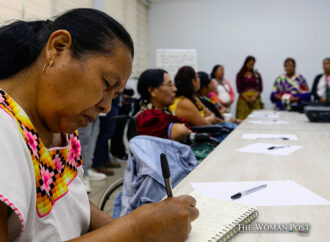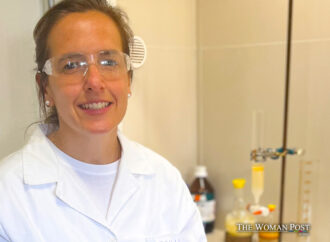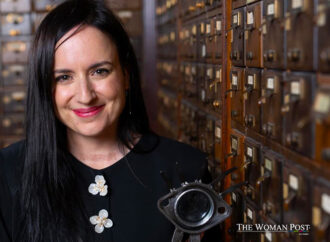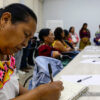Women seek to increase efficiency in energy consumption, reduce waste and pollution and protect ecosystems, with a process of adaptation towards green jobs.
Recently, the annual Euroclima+ report 2019 – 2020 was released, which was marked by economic growth and a slowdown in growth in large cities. This report is the EU’s flagship program on environmental sustainability, climate change, and access to women in green jobs in Latin America. The initiative supports Latin American countries to advance in implementing their climate policies, to reduce the impact of climate change and its collateral effects.
The Euroclima+ initiative has 6 lines of action that are linked to the Paris Agreement, which are plans and policies; climate finance; transparency and accountability; intersectional, multi-level and multi-sectoral coordination; action for climate empowerment and gender and vulnerable groups. In the last line, Euroclima+ invites strengthening capacities in the integration of the gender perspective and the participation of groups in vulnerable situations, such as women and children.
Another economic study called “Towards green and decent job growth” conducted by the Millennium Institute and published by ITUC CSI IGB revealed that investment in the green economy can create a whopping 48 million green jobs in 7 sectors and 12 countries over 5 years. Data collected from the report indicate that current work is 200 million unemployed, 900 million people live in extreme poverty and 1.52 billion workers are in precarious employment. However, Sharan Burrow, General Secretariat of the International Trade Union Confederation believes that 48 million green jobs can be created in 5 years, in just a dozen countries. In addition, it suggests that hundreds of millions of jobs could be created in 24 or 50 countries.
The findings of the Millennium Institute analysis reached large scenarios of green investment in 7 sectors, which are energy, construction, transport, manufacturing, agriculture, forestry, and water. The report’s figures generated principles to encourage a green economy, including achieving gender equality and ensuring women’s inclusion.
Women will achieve a better future with zero emissions
In recent years, some entities share their lessons and alliances of inclusion, sustainability, and resilience to provide development opportunities for women. Ana María Rodríguez-Ortiz, Vice President of Sectors and Knowledge at the Inter-American Development Bank (IDB), believes that green and inclusive recovery is essential to help face the climate crisis.
There is no doubt that sectors such as energy, construction, transport, manufacturing, agriculture, forestry, and water have great potential to create new jobs. In addition, the progress of these sectors may allow the restoration of others in the long term, such as ecotourism.
On the other hand, Ana María Rodríguez-Ortiz says that countries preparing expansionary recovery plans are trying to create decent green jobs and generate transitions, not only in labor skills but also in bringing emissions to zero.
The study called “Employment in a net-zero emissions future in Latin America” published by the Inter-American Development Bank (IDB) in 2020 can be a way to move towards creating a better world for women and facing the current climate crisis. Moussa Oumarou, Deputy Director-General for External Programmed and Partnerships at the International Labor Organization (ILO), believes that potential was found in sustainable agriculture. However, there must be a process of training and education to create business environments and take advantage of job opportunities.
Female green talent in 2022
The first Global Green Skills Report 2022 reveals new ideas on how to lead the global economy towards a greener future. Data collected from the report indicate skills to empower policymakers, governments, and business leaders to help transform the workforce into a green economy future.
The figures show that the share of female green talent increased from 9.6% to 13.3%, that is, a growth of 38.5% from 2015 to 2022. That is why, at present, job offers require numerous green skills, this generated that women are trained in green jobs and positive ecological jobs.
Forcefully, the female green jobs that are developed in the short term are increasing and require an innate experience that women carry inside. That is why, Ryan Roslansky, CEO of LinkedIn, believes that massive changes are taking place in the world of the economy and that not only people but also companies require green skills.

























Leave a Comment
Your email address will not be published. Required fields are marked with *